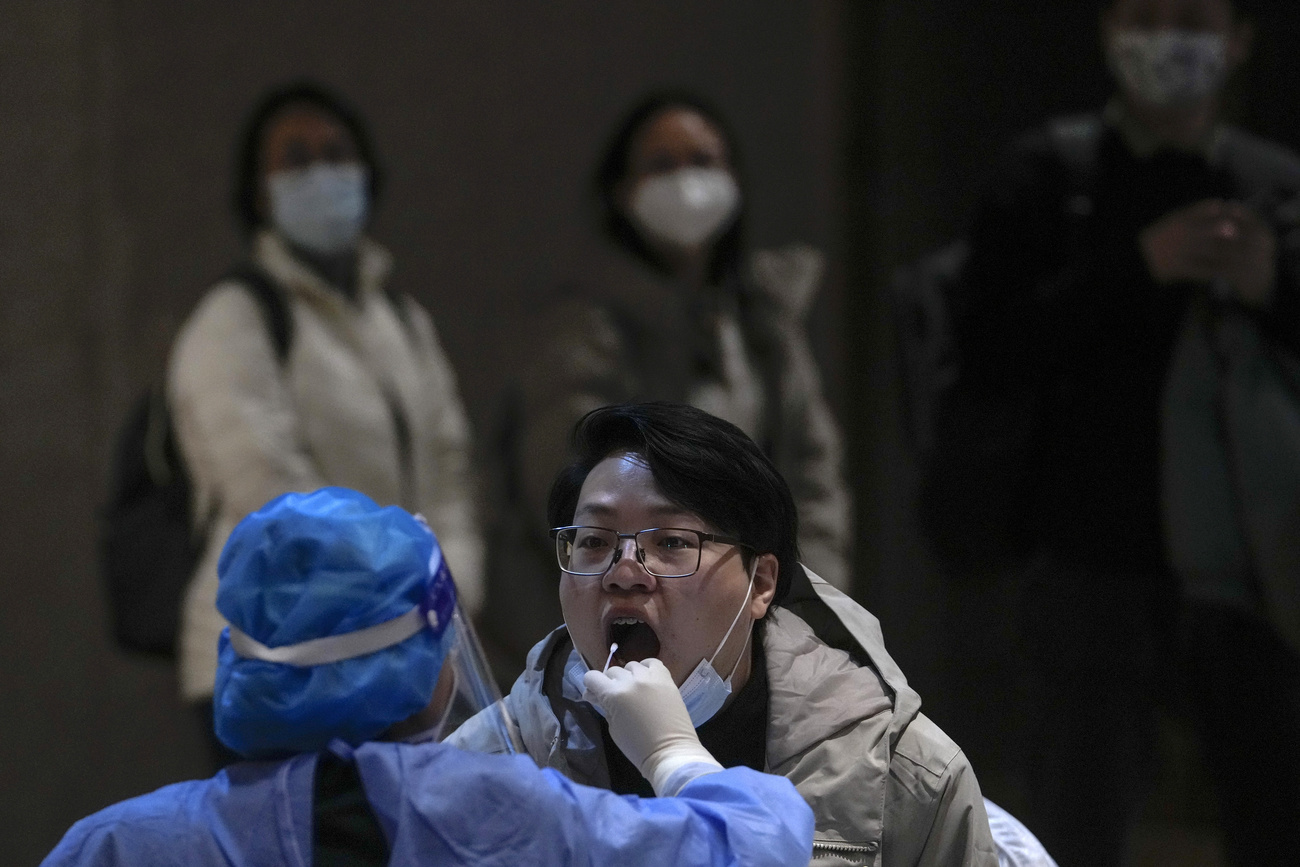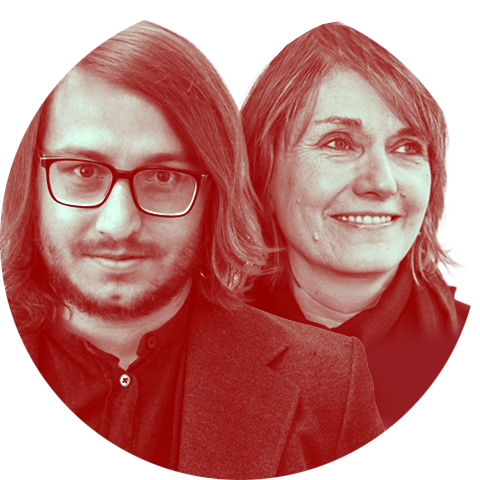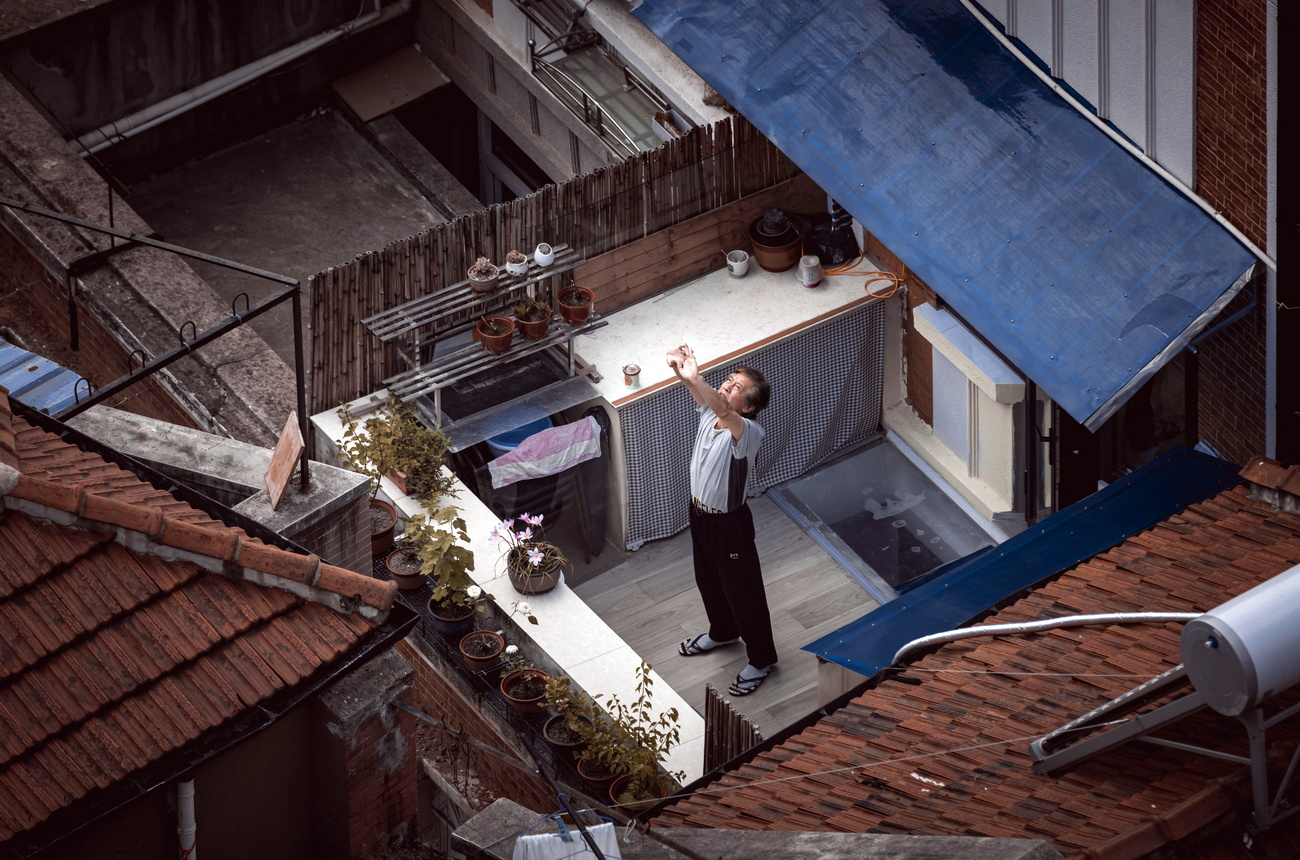Inside Geneva Podcast: Will we get a pandemic treaty?
Hindsight, the saying goes, always has 20/20 vision. Unless, it sometimes seems, you’re human. We seem doomed to repeat our mistakes.
Save the Date for a live recording
We’d like to invite you to a live recording session of our Inside Geneva podcast about the role of the Geneva Conventions and international law. Mark your calendars – June 5, 2024, from 12:30am to 13:30pm – at the Geneva Graduate Institute. Registration is required to secure your spot here.External link If you have any questions, please email us at event@swissinfo.ch.
Remember four years ago? Huddled at home, schools closed, hospitals overwhelmed. And then, after that, the ruthless mass purchase of vaccines by the rich countries, while the poor countries went without?
Now, here in Geneva, member states are preparing for the annual World Health Assembly, the once-a-year gathering where all 194 members of the World Health Organization (WHO) get together to devise global health policy – for the good of us all, apparently.

More
Inside Geneva Podcast: is the world brave enough to agree on a pandemic treaty?
As I write this, diplomats are locked in 12-hour-long daily negotiation sessions, trying to hammer out a pandemic treaty that would prevent us from making the mistakes we made during Covid-19, if, when, the next pandemic strikes.
It may be that, by the time you read this, white smoke has emerged from the meeting room, followed by gleeful diplomats waving a newly agreed treaty. Or maybe not. So far, the negotiations, which have been going on for over two years, have agreed on just one of the 37 clauses in a draft treaty – a very uncontentious one – dealing with raising public awareness.

More
How the World Health Organization is trying to learn lessons from Covid-19
‘Please, get this done’
Despite repeated pleas by the WHO to “get this done”, it seems, as with all other international treaties, that this one is proving extremely tricky. Why have member states found it so difficult to agree? That is the question we ask on Inside Geneva podcast this week.
It’s safe to say, surely, that no one wants to go back to 2020, with its loneliness, uncertainty, fear, and for some, illness, or death. Our governments have admitted they made mistakes. They have, most of them, promised to do their best not to repeat them. But just four short years later, Suerie Moon of Geneva Graduate Institute’s Global Health Centre tells me, “the political urgency, and the willingness of political leaders to think differently, has almost completely evaporated.”
Why? “They’re on short election cycles,” comes the somewhat cynical interpretation from Kerry Cullinan, deputy editor of Health Policy Watch, who has been following the negotiations closely. Kerry has good grounds for her cynicism. She’s South African, and she watched the ugly competition for vaccines closely. Her continent, she tells Inside Geneva podcast, is still paying the price.

More
Inside Geneva Podcast: what became of the pandemic treaty?
“We are still suffering the consequences of Covid. Our economies in Africa are shattered. Countries are defaulting on their debts, and unemployment has risen. My own country is still paying for the vaccines that we had to buy at a premium.”
Equity is key
Moon tells us that, during Covid-19, the world demonstrated “a collapse, a complete failure of international cooperation,” and must now do better. In the existing International Health Regulations (drafted after the SARS outbreak of 2003/4) there is nothing about equitable access to vaccines.
The draft for a new pandemic treaty does include this, suggesting that 20% of vaccines should be allocated to the WHO to distribute to the most needy and vulnerable. What do the big pharmaceutical companies, who, they constantly remind us, came up with effective vaccines in record time, think of this?

More
A call for greater openness on the pandemic treaty
In fact, many are ready to accept that clause, although, as Cullinan points out, the key question is: “Who’s going to pay for it?” But Thomas Cueni, former head of the International Federation of Pharmaceutical Manufacturers, is not dead against a treaty. “I’ve always been of the view that no treaty is better than a bad treaty. Have a good treaty, I think it would be great,” he told us in 2023.
What he and his colleagues want to remind us is that “when you look at what worked during the pandemic, it was innovation…listening to some people you could be deceived and think all these vaccines, tests, and treatments fell from heaven. Not quite.”
So, the pharma industry is willing to share, but probably not at any price. In the negotiations over a pandemic treaty, wealthy countries with significant pharmaceutical companies want any clauses on sharing of intellectual property for products such as vaccines to be voluntary, not obligatory.

More
Inside Geneva Podcast: Do we need a pandemic treaty?
Sovereignty
Another obstacle to a meaningful treaty is the global mood: the sovereignty of nation-states is popular, and enthusiasm for multilateral organisations like the WHO is waning. A binding treaty that requires countries to take immediate action, with obligatory transparency and sharing of pathogens and other data, is, for many governments, politically tricky.
Not, billions of weary citizens might say, as politically tricky as being unprepared for the next pandemic would be. But, in a bid to come up with at least something to present to the World Health Assembly, it seems the treaty negotiators are considering a framework document, with the most awkward sections to be agreed on at a later date.
Moon is wary of this, believing it is simply “kicking things down the road” to a point where nothing significant may ever be agreed. Cullinan, however, thinks it could be a wise move, giving states the chance to commit now to the bones of a treaty, while still allowing them time to flesh out those bones.

More
How committed is the world to a stronger WHO?
Failure, both agree, would be an opportunity missed. Moon warns that if member states can’t agree, the WHO will almost certainly be blamed. “But ultimately, it’s not in the control of the WHO what governments decide to do. Whether leaders have the foresight and the courage and the leadership to do that, we will find out by the end of May.”
Cullinan puts it more starkly. Failure, she tells Inside Geneva,“it would be an insult to the seven million people plus who have died during the pandemic, for there not to be a historic agreement.”
Join host Imogen Foulkes on the Inside Geneva podcast to listen to the full interviews.
For more insights and discussions from Switzerland’s international city, subscribe to Inside Geneva on Apple PodcastsExternal link, SpotifyExternal link, or wherever you get your podcasts. And subscribe to our newsletter to get all the International Geneva news and views from Imogen Foulkes in your inbox:
Sign up! The latest updates from International Geneva – in your inbox
For more audio content from SWI swissinfo.ch, explore The Swiss Connection, a podcast with Swiss stories for the world.
This article was updated on May 16, 2024, to mention that Thomas Cueni is now the former head of the International Federation of Pharmaceutical Manufacturers. The interview mentioned in the podcast was recorded in 2023.

In compliance with the JTI standards
More: SWI swissinfo.ch certified by the Journalism Trust Initiative











You can find an overview of ongoing debates with our journalists here . Please join us!
If you want to start a conversation about a topic raised in this article or want to report factual errors, email us at english@swissinfo.ch.